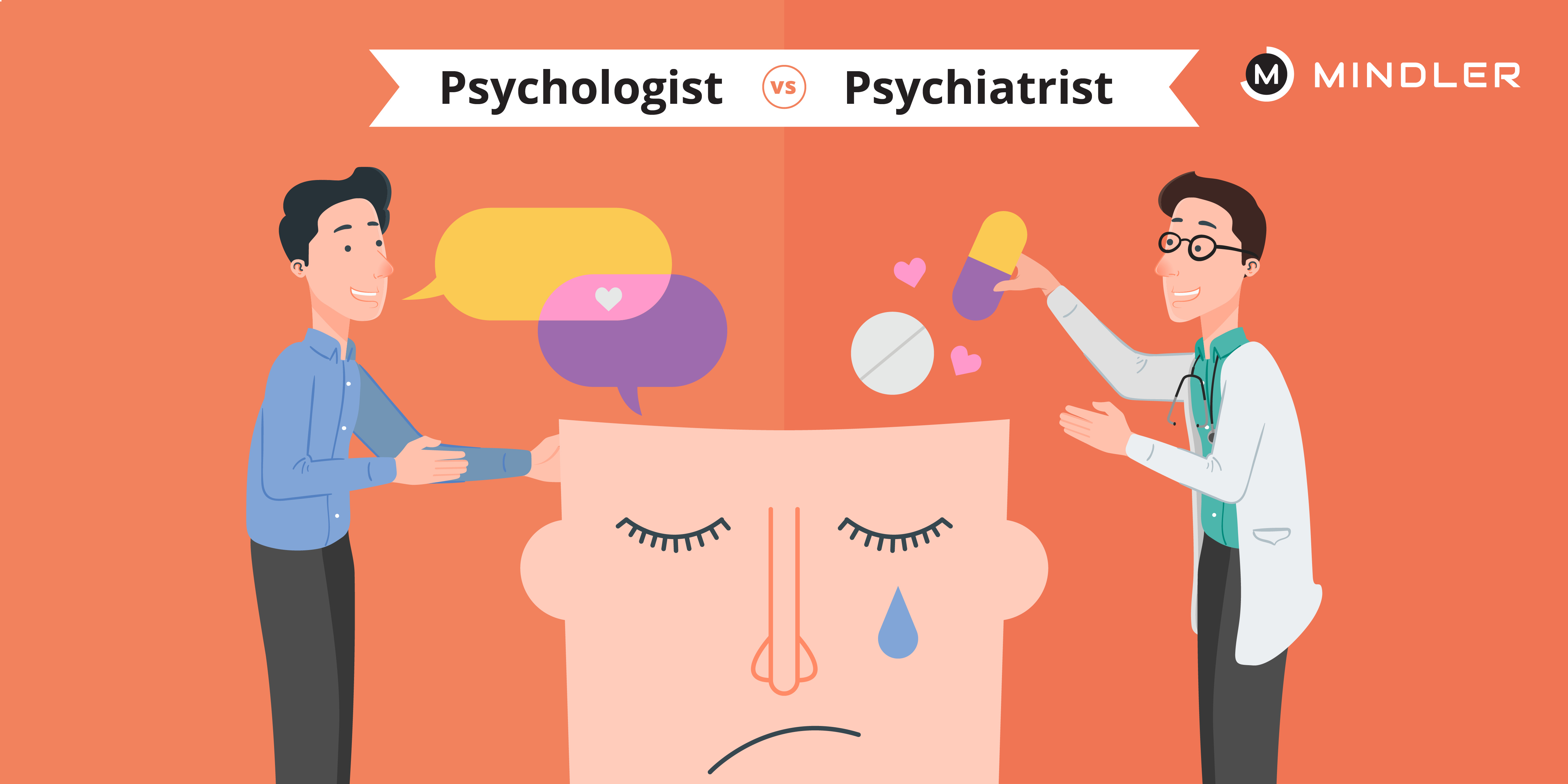Scientific Psychologists Vs Psychiatrists: Secret Differences You Should Know
The difference between clinical psycho therapists and psychoanalysts is important for individuals seeking psychological health treatment, as each specialist offers unique know-how shaped by their academic backgrounds and treatment approaches. This distinction increases essential concerns regarding which expert might be best suited for numerous psychological health and wellness needs.
Educational Background
Numerous individuals looking for mental health and wellness solutions may question the distinctions in instructional backgrounds in between professional psychologists and psychiatrists (clinical psychologists kew Melbourne). The distinctions are considerable and important for recognizing the duties each professional plays in psychological healthcare

On the other hand, psychoanalysts are medical doctors (M.D. or D.O.) that finish a four-year medical degree followed by a residency in psychiatry, which lasts an extra four years. Their medical training equips them to understand the biological elements of psychological disorders, allowing them to suggest medicines and use a medical viewpoint on therapy.
These differing instructional courses underscore the one-of-a-kind experience each specialist gives the area, shaping their strategies to patient, treatment, and medical diagnosis care (clinical psychologists kew Melbourne). Understanding these differences is important for people navigating the mental health system

Treatment Techniques
Diverse therapy strategies define the methods of medical psycho therapists and psychoanalysts, showing their distinct training and locations of proficiency. Scientific psycho therapists primarily use psychiatric therapy, using methods such as cognitive-behavioral treatment (CBT), dialectical behavior treatment (DBT), and psychodynamic treatment. Their focus gets on psychological and mental assessment, intervention, and the growth of coping strategies to attend to numerous psychological health conditions. They might work with groups, people, or pairs, customizing their therapeutic techniques to the certain requirements of their customers.
On the other hand, psychoanalysts are distinctly qualified to detect and deal with psychological health and wellness problems via a combination of psychotherapy and pharmacotherapy. Their clinical training enables them to prescribe medications, which can be critical for taking care of conditions such as schizophrenia, bipolar affective disorder, or extreme clinical depression. Psychoanalysts commonly take an even more biomedical method, taking into consideration the biological, mental, and social variables influencing a client's psychological health.

Role in Mental Healthcare
The duties of clinical psychologists and psychiatrists in mental health and wellness care are complementary, showing their distinctive training and competence. Clinical psychologists mainly concentrate on the assessment, diagnosis, and therapy of emotional issues via various healing modalities, including cognitive-behavioral therapy (CBT), social treatment, and psychoeducation. Their training highlights comprehending human behavior, psychological functioning, and the healing process, allowing them to offer evidence-based interventions tailored to private requirements.
On the other hand, psychoanalysts are clinical doctors who focus on the diagnosis and treatment of psychological wellness conditions, typically utilizing a biomedical method. They can recommend medications to manage psychiatric signs and are trained to think about the physiological facets of mental wellness, such as neurobiology and pharmacology. This medical point of view enables psychoanalysts to deal with complicated situations that may need a mix of medicine monitoring and psychotherapy.
Together, medical psychologists and psychiatrists create an extensive mental health and wellness treatment structure, attending to both mental and medical demands. Cooperation between these specialists guarantees that people receive alternative treatment, inevitably boosting therapy results and boosting the explanation lifestyle for people experiencing mental health obstacles.
Kinds Of Problems Treated
While both medical psychologists and psychiatrists attend to a broad array of mental health and wellness problems, their techniques and locations of competence frequently dictate the particular problems they treat. Scientific psychologists mainly concentrate on the evaluation and therapy of emotional, behavioral, and cognitive disorders with psychotherapy.
In contrast, psychiatrists are medical physicians that can prescribe medications and have actually specialized training in the organic facets of psychological health and wellness. They typically handle more complex psychological conditions that may need medicinal treatment, such as schizophrenia, bipolar problem, extreme clinical depression, and material utilize conditions. Psychiatrists may integrate drug monitoring with psychotherapy but usually focus on the biochemical and clinical elements of mental health concerns.
Comprehending these distinctions can assist people look for the suitable care tailored to their particular mental wellness demands, guaranteeing they obtain the most reliable treatment for their problems.
Insurance and Expense Factors To Consider
Navigating insurance policy and price considerations is a crucial element for individuals looking for psychological health and wellness solutions from professional psychologists or psychoanalysts. Both careers may approve different insurance coverage plans, yet the degree of insurance coverage can vary significantly. Psychiatrists, who often suggest medicine, might have different invoicing methods compared to clinical psycho therapists, that generally concentrate on psychiatric therapy.
Insurance policy compensation for psychiatric solutions could be more desirable due to the medical nature of their technique. Individuals may run into higher deductibles or co-pays when getting in touch with a psychoanalyst. In contrast, medical psychologists may provide services billed under psychological health benefits, which can cause reduced out-of-pocket prices, depending upon the insurance company's plan.
Additionally, individuals need to take into consideration the frequency and duration of therapy sessions when evaluating costs. While psychoanalysts could offer shorter, medication-focused check outs, scientific psychologists frequently engage in longer sessions dedicated to restorative techniques.
Inevitably, understanding the particular regards to one's insurance coverage strategy, consisting of network availability, coverage limitations, and pre-authorization requirements, is crucial. Clients are urged to call their insurance coverage company to make clear advantages and discover options informative post for economical mental healthcare.
Final Thought
In summary, the differences between medical psycho therapists and psychoanalysts are vital for notified decisions relating to psychological healthcare. Educational background, therapy methods, and duties in psychological wellness dramatically vary in between both professions. While scientific psychologists primarily concentrate on psychotherapy, psychoanalysts integrate medicine administration right into their practice. Recognizing these differences boosts the capacity to choose the proper expert based upon private requirements, find this whether they entail therapy, drug, or a combination of both for optimal mental health results.
The distinction in between scientific psycho therapists and psychiatrists is vital for individuals looking for psychological health and wellness treatment, as each professional offers one-of-a-kind expertise shaped by their instructional histories and treatment methods.The roles of scientific psychologists and psychoanalysts in mental wellness treatment are complementary, reflecting their unique training and expertise.While both clinical psychologists and psychiatrists deal with a vast array of psychological wellness disorders, their approaches and areas of proficiency typically determine the particular problems they treat.Browsing insurance and price considerations is a crucial element for individuals looking for mental health and wellness services from medical psycho therapists or psychiatrists.In recap, the differences between clinical psycho therapists and psychoanalysts are important for informed choices pertaining to psychological wellness care.